Summer Reading Recommendations for Special Librarians
Lauren Hays
Summer reading is an important part of public library life, and I hope those of you who work in special libraries also have some time this summer to slow down and read.
When I worked in an academic library, I always compiled a summer reading list with recommendations from faculty. It was a good opportunity to hear from them in a different capacity and to get new ideas for books. I think summer reading lists work in any library and hope you consider how they might benefit stakeholders in your organization.
For now, though, I’ll share five books I recommend that I think you might enjoy. I tried to select books from different genres to hopefully appeal to a wide audience. Only one book is fiction and only one book is directly about libraries. Each book has been useful for me.
The Midnight Library by Matthew Haig: This work of fiction is moving and forces the reader to reflect on their own lives and choices. The story develops in such a way as to hold your attention. While not a light-hearted beach read, it is worth your time.
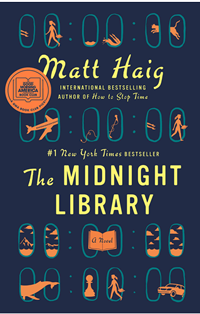
Book description:
“Somewhere out beyond the edge of the universe there is a library that contains an infinite number of books, each one the story of another reality. One tells the story of your life as it is, along with another book for the other life you could have lived if you had made a different choice at any point in your life. While we all wonder how our lives might have been, what if you had the chance to go to the library and see for yourself? Would any of these other lives truly be better?
In The Midnight Library, Matt Haig’s enchanting blockbuster novel, Nora Seed finds herself faced with this decision. Faced with the possibility of changing her life for a new one, following a different career, undoing old breakups, realizing her dreams of becoming a glaciologist; she must search within herself as she travels through the Midnight Library to decide what is truly fulfilling in life, and what makes it worth living in the first place.”
Library: A Unique History by Matthew Battles: This is a book I read during my M.L.S. degree. It is a fascinating read about the history of libraries. Admittedly, it may not sound like a page-turner, but everyone I know who has read this book loves it–and I do not think that is because we are all librarians.
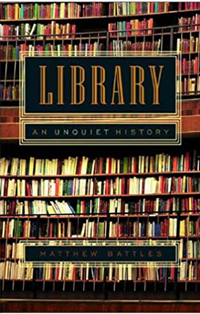
Book description:
“Through the ages, libraries have not only accumulated and preserved but also shaped, inspired, and obliterated knowledge. Now they are in crisis. Former rare books librarian and Harvard metaLAB visionary Matthew Battles takes us from Boston to Baghdad, from classical scriptoria to medieval monasteries and on to the Information Age, to explore how libraries are built and how they are destroyed: from the scroll burnings in ancient China to the burning of libraries in Europe and Bosnia to the latest revolutionary upheavals of the digital age. A new afterword elucidates how knowledge is preserved amid the creative destruction of twenty-first-century technology.”
Design Thinking: Beyond the Sticky Notes by Devyani M. Lal: In my role, I find myself designing and creating more than I imagined. This is not an area where I feel I have a lot of professional expertise, so I am always looking for resources that can help me. This book is practical with tips you can immediately use. At the same time, it provides a story of design that helps put things in perspective. Finally, I find the international perspective useful. Too often, I read books with many of the same ideas and names included.
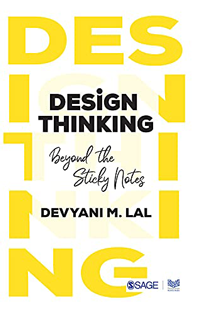
Book description:
“Design thinking may forever remain as Ideo’s original creative solution to innovation but today it has been popularly adopted by Apple, Google, Samsung and the GEs of the world as a go to mantra for business growth. While Ideo and other Silicon Valley experts have always been emulated for their unique thinking, the dynamic variables of Indian industry such as its competitive economy, evolving demographics, tastes and preferences prove that prescribed design thinking models do not always provide absolute solutions.
Design Thinking: Beyond the Sticky Note showcases that design is much more than developing aesthetically appealing products. It discusses various philosophies of design in today’s context such as design for debate, design for growth, design for social impact, human-centered design and mindful design. The book captures the views of design practitioners working in organizations like BYJU’S, Microsoft, Zoom, Rovio Entertainment, Google and Palantir Technologies. Design thinking is not limited to a position, profession or specialization. It is for everyone! The book incorporates evolved tools of design thinking which allows the creation and validation of design solutions focusing on user needs. In addition, this book highlights the shift in design from industrial product design to systems thinking through examples of technology and data driven aspects of design. It will be an insightful and useful read for design practitioners and thinkers in India as well as for industry professionals who would like to learn, use and apply the design thinking approach in daily and professional lives.”
Make it Stick: The Science of Successful Learning by Peter C. Brown, Henry L. Roediger III, and Mark A. McDaniel: This book is for anyone involved in instruction. The concepts discussed are grounded in research of how the human brain learns. The authors include practical ideas you can immediately implement in your instruction and will surprise you with insights about how you may have been teaching (and studying!) all wrong.
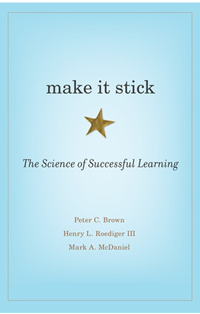
Book description:
“To most of us, learning something “the hard way” implies wasted time and effort. Good teaching, we believe, should be creatively tailored to the different learning styles of students and should use strategies that make learning easier. Make It Stick turns fashionable ideas like these on their head. Drawing on recent discoveries in cognitive psychology and other disciplines, the authors offer concrete techniques for becoming more productive learners.
Memory plays a central role in our ability to carry out complex cognitive tasks, such as applying knowledge to problems never before encountered and drawing inferences from facts already known. New insights into how memory is encoded, consolidated, and later retrieved have led to a better understanding of how we learn. Grappling with the impediments that make learning challenging leads both to more complex mastery and better retention of what was learned.
Many common study habits and practice routines turn out to be counterproductive. Underlining and highlighting, rereading, cramming, and single-minded repetition of new skills create the illusion of mastery, but gains fade quickly. More complex and durable learning come from self-testing, introducing certain difficulties in practice, waiting to re-study new material until a little forgetting has set in, and interleaving the practice of one skill or topic with another. Speaking most urgently to students, teachers, trainers, and athletes, Make It Stick will appeal to all those interested in the challenge of lifelong learning and self-improvement.”
Management: The Basics by Morgen Witzel: Every aspect of an organization must have good leaders and managers, libraries are no different. If you find yourself in a management role, or inspire to be a manager, I suggest reading this book. It is current and discusses how management has changed in light of COVID-19.
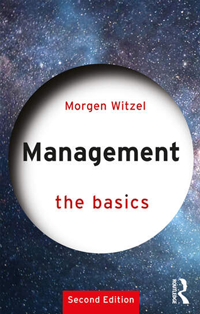
Book description:
“Management: The Basics provides an easy, jargon-free introduction to the fundamental principles and practices of modern management.
Using examples ranging from people management at Cadbury and the Enron crisis to the marketing of fried chicken in China, the book explains key aspects of management, including:
- business strategy and how to use it to meet goals;
- how successful marketing works;
- how organizations are structured and function;
- fundamentals of corporate finance;
- human resource management’s role in the management and development of people;
- the importance of knowledge and culture to management.
This second edition has been updated to take account of general advances in management thinking, including developments in governance, responsible management and environmental pressures, and a new emphasis on health and well-being in the aftermath of the Covid-19 pandemic. It brings management thinking fully up to date with the latest currents and trends. This accessible, readable primer is an ideal starting point for anyone wanting to learn about business and management.”
Lauren Hays
Lauren Hays, PhD, is an Assistant Professor of Instructional Technology at the University of Central Missouri, and a frequent presenter on topics related to libraries and librarianship. Her expertise includes information literacy, educational technology, and library and information science education. Please read Lauren’s other posts relevant to special librarians. And take a look at Lucidea’s powerful integrated library systems, SydneyEnterprise, and GeniePlus used daily by innovative special librarians in libraries of all types, sizes and budgets.
Never miss another post. Subscribe today!
Similar Posts
Interview with the Author: Saffady on Information Governance Technologies
Technology is at the heart of modern information governance, shaping how organizations manage records and ensure compliance. In this interview, expert William Saffady shares insights on the essential technologies driving the field and what information professionals need to know.
Reflections on David Epstein’s Range: How Generalists Triumph in a Specialized World
Lauren Hays explores “Range: How Generalists Triumph in a Specialized World” through a librarian’s lens, reflecting on the role of broad knowledge in critical thinking and problem-solving.
Interview with the Editor: Bobbi L. Newman on Well-Being in the Library Workplace
Enjoy Lauren Hays’ interview with Bobbi L. Newman on why workplace well-being matters, how managers can drive meaningful change, and what steps libraries can take to create a culture of trust and support.
Interview with the Author: Brighid Gonzales on Library Website Design
In her new book, Library Website Design and Development, Brighid M. Gonzales provides a step-by-step guide to help librarians create websites that engage and support their users. In this interview, Brighid shares insights on trends, opportunities, and best practices for building a strong library website.
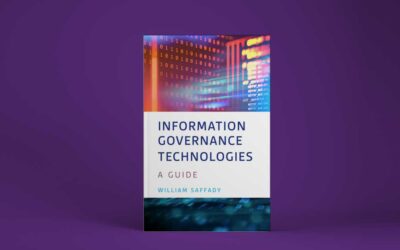
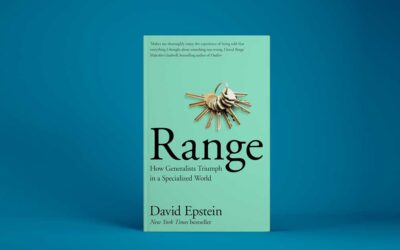
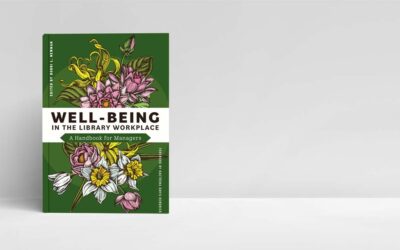

Leave a Comment
Comments are reviewed and must adhere to our comments policy.
0 Comments